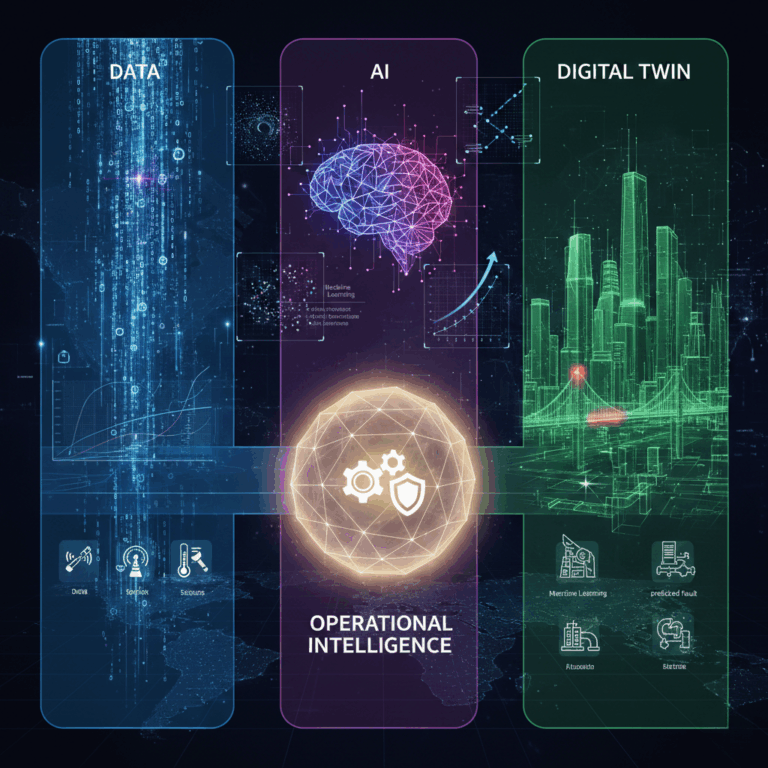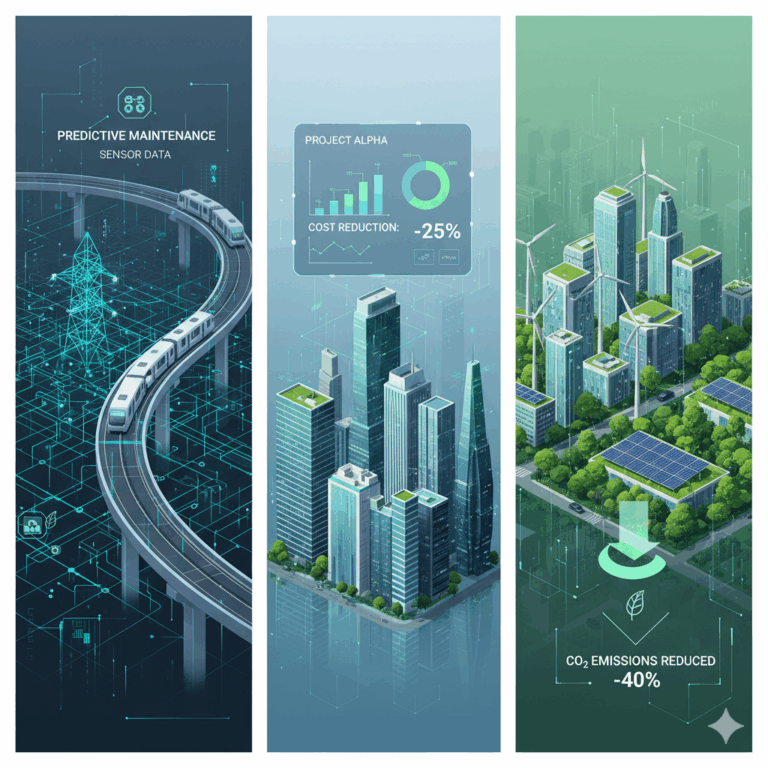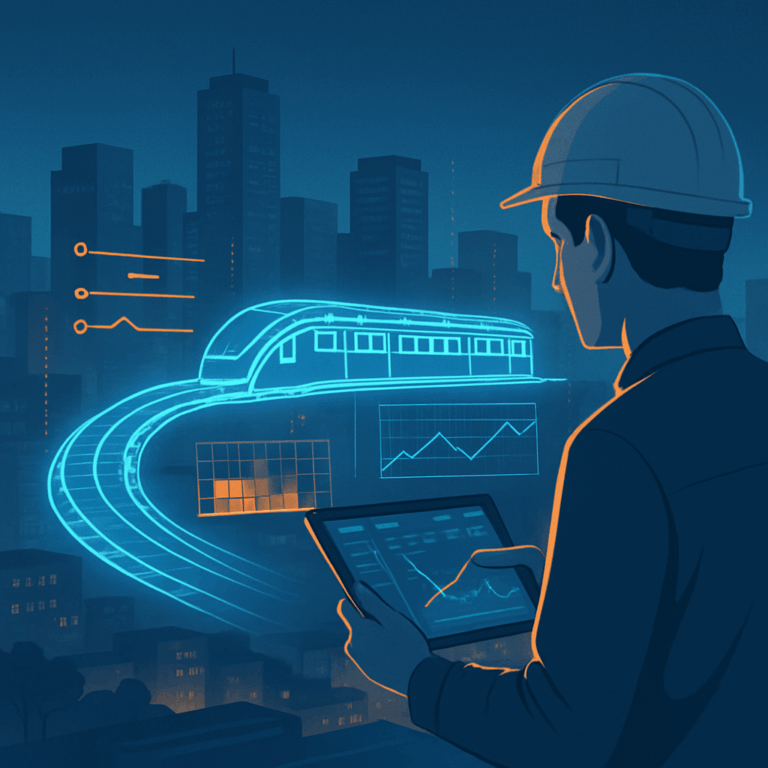Digital transformation is redefining urban infrastructure. Especially data-driven solutions form the foundation of tomorrow’s cities. These infrastructures make transportation, energy, water, and communication systems more efficient and sustainable.
Why Data-Driven Approaches Matter
Urban infrastructure affects the quality of life for millions every day. To ensure smooth operations, city managers must rely on data-driven decisions. Traditional methods often cause delays, but data-driven models identify issues before they arise.
Real-Time Monitoring for Proactive Management
IoT sensors continuously collect data from infrastructure components. These systems analyze the data and provide instant performance tracking. For example, teams can detect pressure drops in water pipes early and intervene before a breakdown.
The Power of Predictive Maintenance
Failures can lead to costly consequences. However, with data-driven systems, teams can anticipate potential issues. This reduces maintenance expenses and helps infrastructure operate smoothly over time.
Energy Efficiency and Resource Optimization
Data highlights consumption patterns in energy infrastructure. Managers optimize energy production and distribution accordingly. Similarly, data helps ensure efficient use of water and waste management resources.
Smart Planning Through Decision Support Systems
Data platforms empower managers to plan strategically. By analyzing population density, environmental factors, and consumption habits, they can design effective urban solutions. This leads to more informed city planning.
Enhancing Citizen Experience
Infrastructure decisions directly impact people’s daily lives. For instance, analyzing traffic data enables the adjustment of smart traffic lights. This saves time and reduces carbon emissions.
Cities Prepared for the Future
Data-driven infrastructure helps cities adapt to climate change, population growth, and natural disasters. These systems support long-term sustainability goals and make cities more resilient.
Conclusion
Data-driven infrastructure improves urban quality of life. Decision-makers manage resources more effectively through digital systems. This approach represents not only a technical evolution but also a social transformation. Future cities will rise on the digital foundations we build today.













